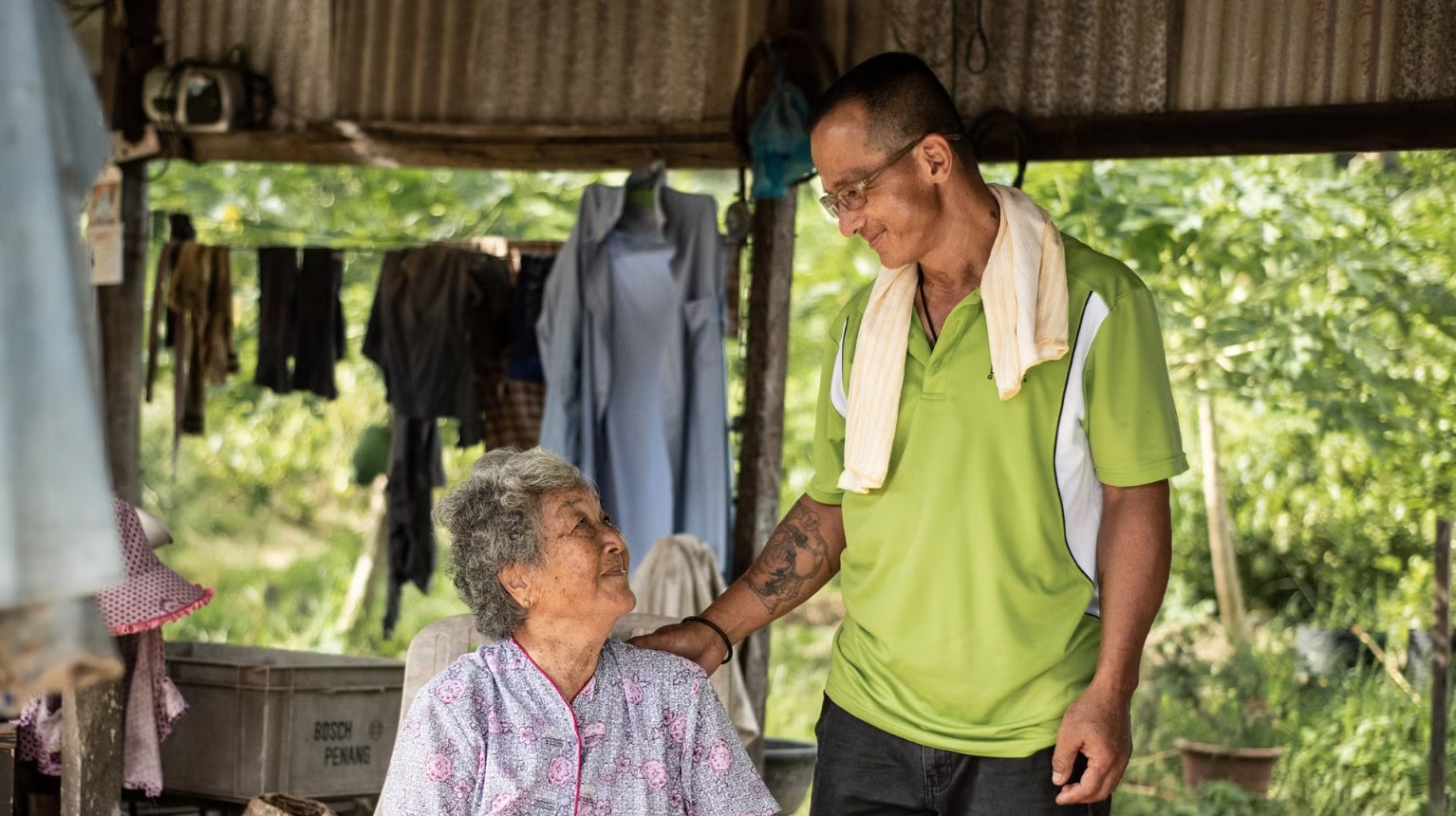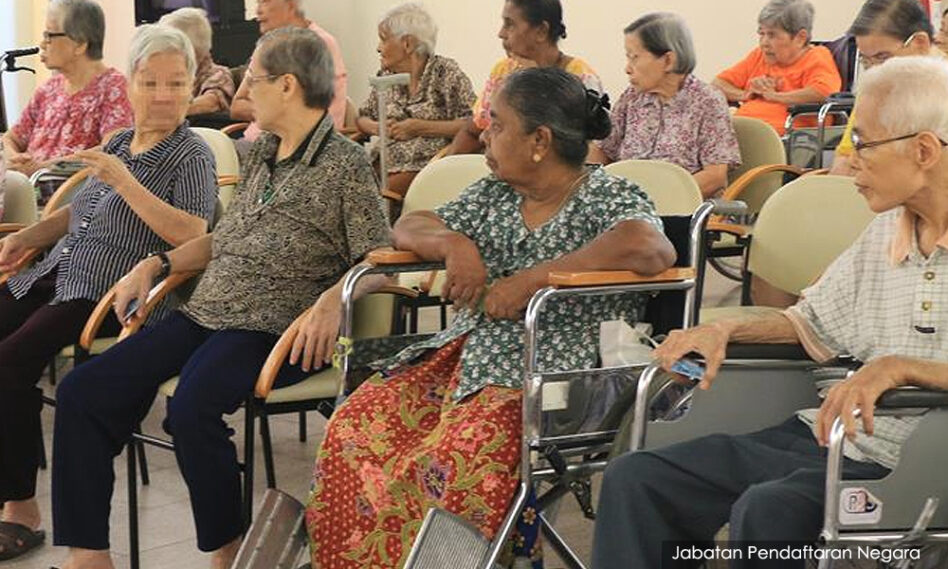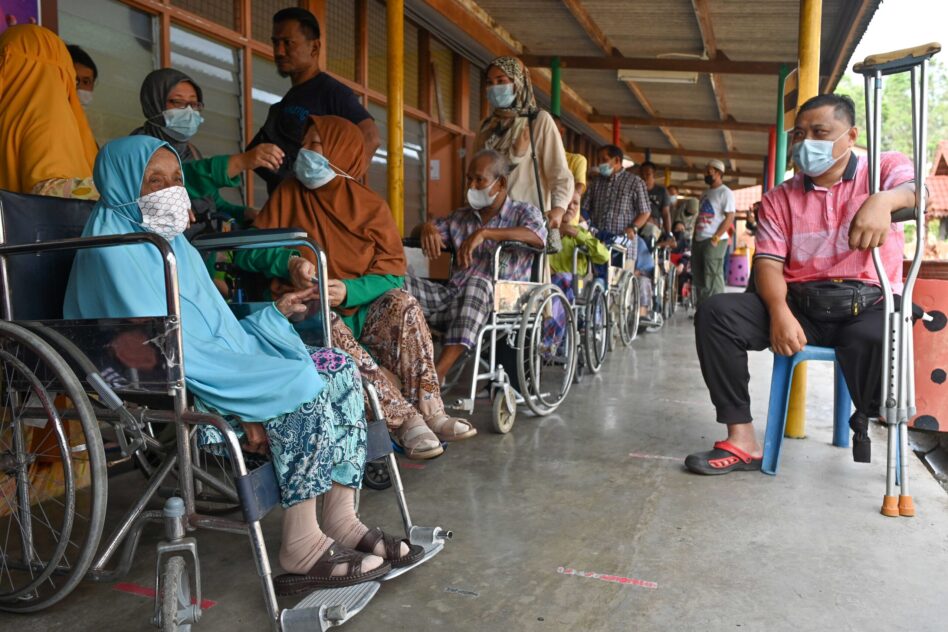
MALAYSIA is experiencing significant demographic changes, notably an increasing number of senior citizens.
According to the Malaysian Department of Statistics and the Health Ministry, Malaysia is projected to become an ageing nation by 2030.
The World Health Organisation (WHO) reports a similar global trend: currently, one billion people worldwide are 60 years old or older. This number is expected to rise to 1.4 billion by 2030, representing one-sixth of the global population, and to 2.1 billion by 2050.
Additionally, the population of individuals aged 80 and above is projected to triple from 2020 to 2050, reaching 426 million people.
As the number of senior citizens grows, issues related to inactive elderly individuals who struggle to support themselves and face challenges in affording medical treatments frequently make headlines.
The elderly play a crucial role in imparting life’s core values to younger generations, emphasising the importance of supporting them.

Therefore, addressing the needs of the elderly in Malaysia, both within our families and on a broader societal level, is essential. This support underscores the critical role of caregivers.
Caregivers are indispensable in maintaining the health, independence, and overall quality of life of senior citizens.
They provide a range of services, from medical and dental care to personal care, emotional support and assistance with various household chores.
Caregivers often serve as the primary connection to the outside world for the elderly, especially those who are immobile or chronically ill. Their role is vital for patients suffering from conditions such as stroke, high blood pressure, cancer, and kidney failure.
Caregiving is demanding, both physically and emotionally. Caregivers often sacrifice their own time and well-being to attend to the needs of senior citizens, performing tasks such as lifting, transferring, feeding, and managing medical equipment.
The stress, anxiety, and depression associated with caregiving can take a toll on their mental health. Isolation and loneliness are common, exacerbated by the lack of free time.
Economically, many caregivers either reduce their working hours or leave the workforce entirely, leading to a loss of income and benefits. Additionally, the cost of medical equipment, home modifications, and other care-related expenses can be substantial.
Supporting caregivers enhances the quality of life for both them and the senior citizens they care for. Programmes, grants, and other forms of assistance can improve caregivers’ physical and mental health, reduce stress, and elevate living standards.
Well-supported caregivers are better equipped to provide high-quality care, which in turn reduces mortality rates among senior citizens. Regular care and interaction from caregivers contribute to the mental and physical wellbeing of the elderly.
Government intervention is crucial in improving the quality of life for senior citizens. Ensuring access to better health care, suitable housing, and social services can make a significant difference.
Comprehensive health checkups, proper treatment, and preventative care are essential for maintaining the health of the elderly.

Housing should be adapted to meet their needs, including features like handrails, wheelchair ramps, and emergency alarms. Social services, such as community centres and programmes, provide opportunities for socialisation, mental stimulation, and physical activity, enhancing their quality of life.
Caregiving is a demanding and essential task that requires substantial effort, resources, and energy. Long-term, sustainable, and holistic care for senior citizens can be achieved through government subsidies and consistent caregiver training programmes.
Scholarships and grants can alleviate the financial burden on caregivers, while educational interventions equip them with the necessary skills and knowledge. Allowing caregivers time to rest ensures they can continue to provide high-quality care.
Ultimately, the support of all stakeholders, including the government, caregivers, and the community, is vital in addressing the needs of an ageing population and improving the quality of life for senior citizens.
Increasing the capacity of elderly care centres, equipped to handle physical and psychological conditions, is also essential for this endeavour.
Dr Azleen Ilias is a Senior Lecturer and an OKU, Department of Accounting and Finance, UNITEN Business School (UBS), Universiti Tenaga Nasional (UNITEN).
The views expressed are solely of the author and do not necessarily reflect those of MMKtT.
- Focus Malaysia



No comments:
Post a Comment
Note: Only a member of this blog may post a comment.